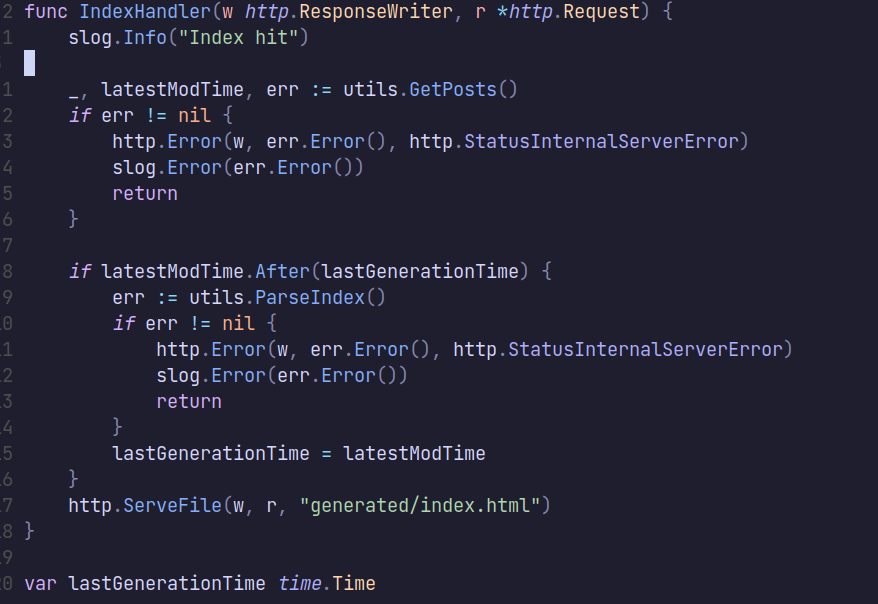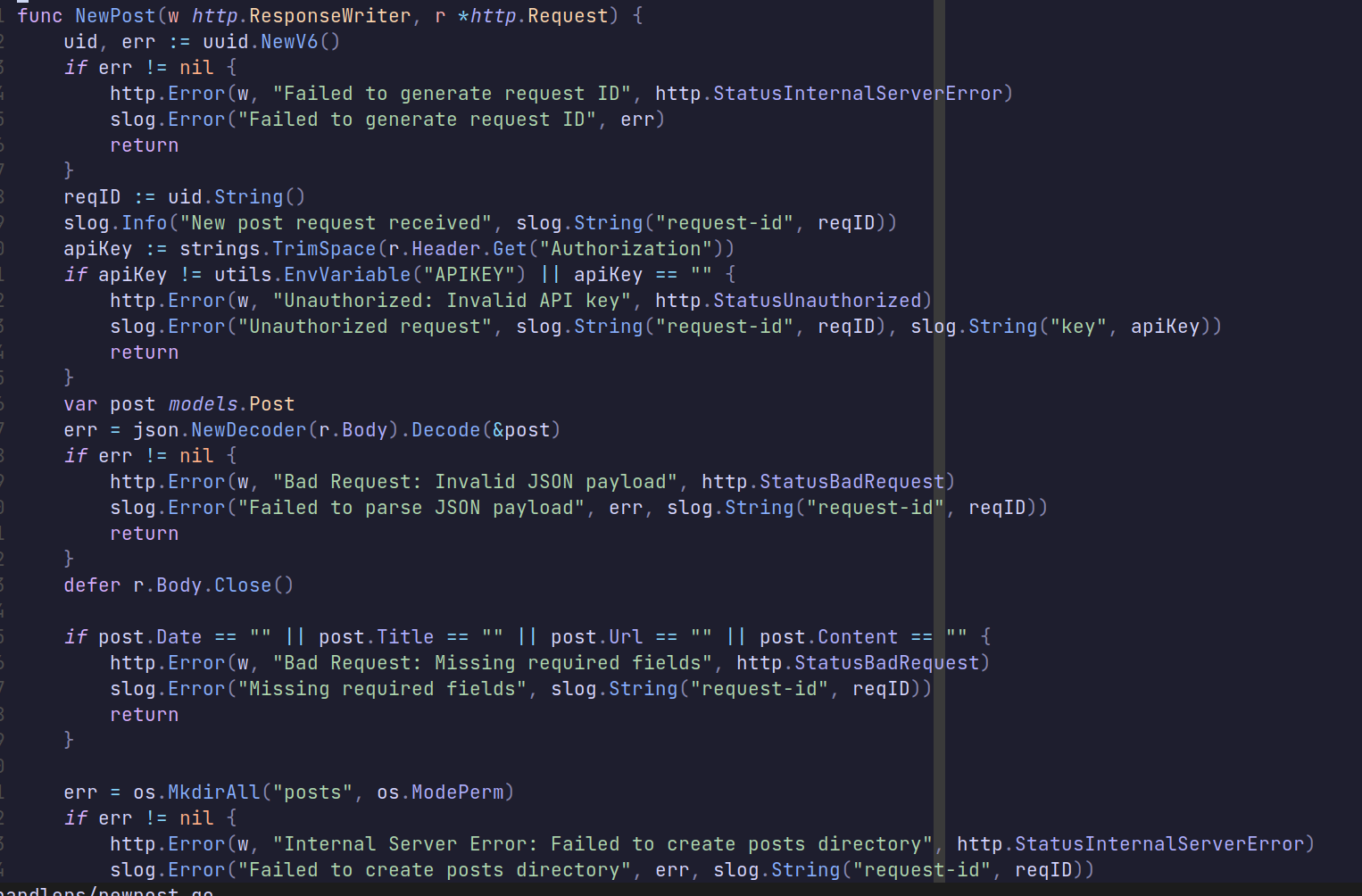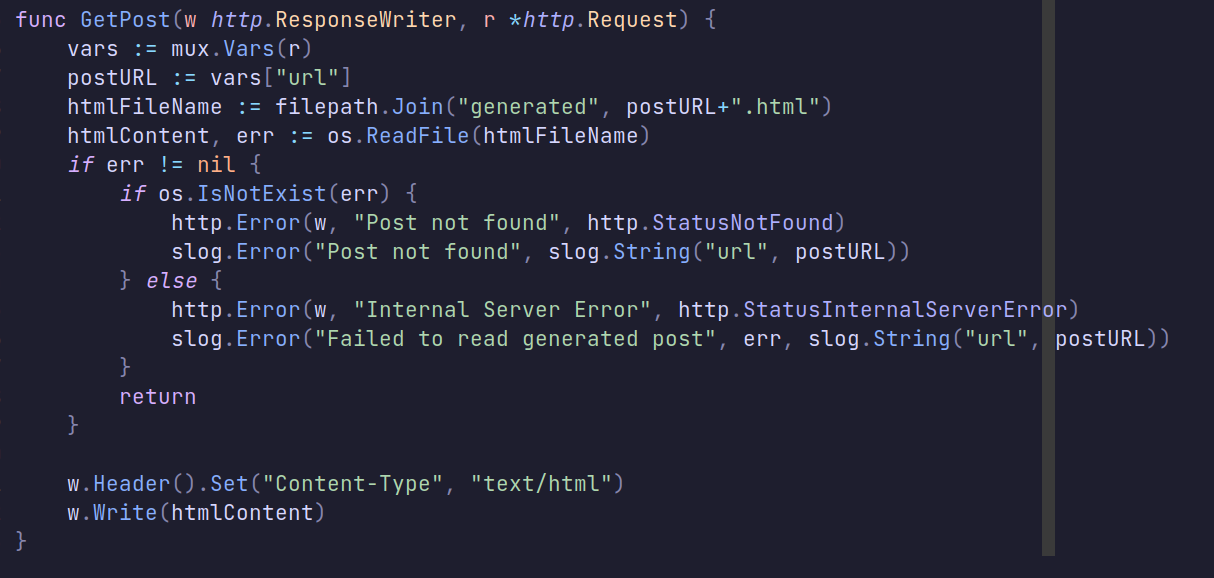A constant re-write …
After little activity on my re-write of this blog I noticed something that hadn’t occurred to me previously.
In the process of over-engineering a simple blog, using new technologies to me ( Vue.js ) and an unfamiliar framework in rust ( Tide) I had removed my want to update this site.
Code that had left my mind, and a framework that hurt my brain…
The obvious solution to me ? Yet another re-write, but with the aim for it to be my last.
The Minimalist Approach
I’ve tried JS frameworks, Angular, React & Vue.js to be specific, I always find myself with hours and hours of work with a finished problem but a weird feeling.
The feeling that I didn’t accomplish anything.
After some thought and a discussion with a friend it hit me, I hated
Glue engineering
The frameworks and work I had done didn’t feel like building, it felt like gluing a large majority of technologies I didn’t write, nor do I understand into a mammoth of a dist file…
With this in mind, I decided my next front-end en devour would be minimalist, much like the original version of this site.
By adopting a minimalist approach, I aimed to:
- Reduce complexity and maintain a clean codebase
- Improve performance by eliminating unnecessary overhead
- Enhance maintainability and ease of understanding
- Focus on the essential features of a blog
The Technology Stack
To align with this new founded idea, I chose the below stack for various reasons:
- Go: Large familiarity, speed & low complexity.
- Gorilla Mux: Established, mature, and I have not yet tried https://tip.golang.org/doc/go1.22
- Markdown: All my previous posts have been written in markdown, but the goal this time is for the ability to edit without editing a database. For quick, smaller changes
- gomarkdown: A Go library for converting Markdown to HTML, gomarkdown simplifies the rendering process.
The Architecture
The architecture of the blog service follows a straightforward and minimalist design:
HTTP Handlers: The endpoints should be simple ( there’s only 5 - technically 4 ) which are:
- r.HandleFunc(“/api/new”, handlers.NewPost).Methods(“POST”)
- r.HandleFunc(“/”, handlers.IndexHandler)
- r.HandleFunc(“/posts/{url}”, handlers.GetPost).Methods(“GET”)
- r.HandleFunc(“/index.html”, handlers.IndexHandler)
- r.HandleFunc(“/tomorrow-night.css”, ……..)
Post Storage: Posts will be stored as .md files with a corresponding .json file, with the added benefit of being re-generated upon each start of the server.
Templates: Go’s text/template is a no-brainer, a simple yet mature templating library, as I do not need extra features.
Slog: I’ve used zap, log, etc etc and need something not as fast and engineered as Zap by Uber, but with better control & debug levels, for this I settled on Slog.
The code
Logging
Keeping it simple, my logging configuration is as follows:
file, err := os.OpenFile("log.json", os.O_CREATE|os.O_WRONLY|os.O_APPEND, 0666)
if err != nil {
slog.Error("Failed to open log file", err)
os.Exit(1)
}
defer file.Close()
slog.SetDefault(slog.New(slog.NewJSONHandler(io.MultiWriter(file, os.Stdout), &slog.HandlerOptions{
Level: slog.LevelInfo})))
StdOut & file logging in a nice json format, for example:
{"time":"2024-04-13T14:54:37.240131824+01:00","level":"INFO","msg":"Starting server"}
Index ep:

- Get Posts returns an array of Post{} with information of the posts normally, but here we are using the time of the most recently modified post.
- Parse index re-gen’s index.html ( Which we only do if a post has been modified)
NewPost
NewPost is not too interesting, some json marshalling, validation & writing the .json and .md file

…etc etc etc
Get Post
Simple yet again, read a file, return it

Utils
The most interesting part of this is in our util package, the functions which turn MD to HTML. Using github.com/gomarkdown/markdown for our html generation with a couple short functions
Generate Posts
func GeneratePosts() error {
posts, _, err := GetPosts()
if err != nil {
return err
}
err = os.MkdirAll("generated", os.ModePerm)
if err != nil {
return err
}
for _, post := range posts {
markdownFileName := filepath.Join("posts", post.Url+".md")
markdownData, err := os.ReadFile(markdownFileName)
if err != nil {
return err
}
htmlContent := mdToHTML(markdownData)
tem, err := os.ReadFile("templates/post.html")
if err != nil {
return err
}
tmpl := template.Must(template.New("post").Parse(string(tem)))
var buf bytes.Buffer
err = tmpl.Execute(&buf, struct {
Title string
Date string
Content template.HTML
}{
Title: post.Title,
Date: post.Date,
Content: template.HTML(htmlContent),
})
if err != nil {
return err
}
htmlFileName := filepath.Join("generated", post.Url+".html")
err = os.WriteFile(htmlFileName, buf.Bytes(), 0644)
if err != nil {
return err
}
}
return nil
}
MD To Html
func mdToHTML(md []byte) []byte {
extensions := parser.CommonExtensions | parser.AutoHeadingIDs | parser.NoEmptyLineBeforeBlock
p := parser.NewWithExtensions(extensions)
doc := p.Parse(md)
htmlFlags := html.CommonFlags | html.HrefTargetBlank
opts := html.RendererOptions{Flags: htmlFlags}
renderer := html.NewRenderer(opts)
return markdown.Render(doc, renderer)
}
Tests
Just kidding… you’re not going to read that Although if you wanted to you can find the repo here: https://github.com/seal/go-kimbell
Conclusion
All in all this was a fairly rewarding experience leaving a good feeling in my mind.A minimalist front-end ( which I have intentionally left out, you’re currently using it) and a simple yet effective go backend leading to what I feel like is a finished product ( minus the possibility of a read counter ? )
I think going forward I’ll be adopting this simple mentality more often than not, as I have spent many an hour confused over my own code from as little as 2-3 months ago.